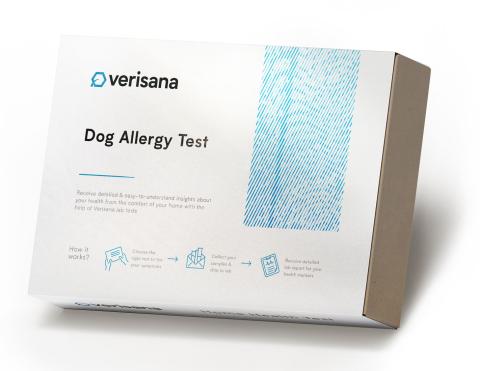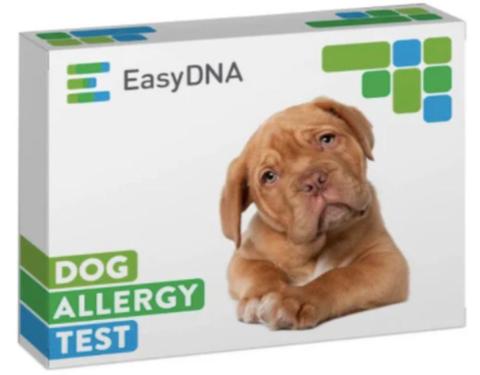
Published on October 14 by Olivia
Just like humans, dogs can suffer from allergies that can affect their health and well-being. Allergies in dogs can manifest in various ways, including itching, skin irritations, gastrointestinal issues, and respiratory problems. Identifying the specific allergens can be challenging, but dog allergy test kits offer a convenient solution. This article explores how these kits work, their benefits, and what to consider when using them.
Dog allergy test kits are tools designed to help pet owners identify specific allergens that may be affecting their dogs. These kits typically analyze a sample of your dog’s blood or saliva to detect antibodies related to allergens. By determining which substances trigger allergic reactions, you can work with your veterinarian to develop an effective management plan.
Dog allergy test kits can typically identify a range of allergens, including:

Most kits require a simple sample collection, usually a blood sample or a saliva swab. Follow the kit instructions carefully to ensure proper collection.
Once the sample is collected, you’ll typically send it to a laboratory for analysis. Some kits allow for at-home testing, providing immediate results.
The lab will analyze the sample for specific antibodies related to various allergens. You’ll receive a report detailing the allergens your dog is sensitive to, often with a severity scale.
At-home test kits can be an easy way for pet owners to begin identifying allergies without the need for immediate veterinary visits.

Identifying allergens early can prevent further health complications and improve your dog's quality of life.
Understanding your dog’s specific allergies allows for more informed decisions regarding diet, environment, and treatment options.
While veterinary visits and allergy testing can be expensive, at-home test kits can often provide a more budget-friendly option.
Not all at-home allergy tests are equally reliable. It’s essential to choose a reputable kit and consider following up with your veterinarian for further testing if needed.
Even with the results, consulting a veterinarian is crucial. They can help interpret the findings and recommend appropriate treatment options, including dietary changes or allergy management strategies.
Some allergies may require more comprehensive testing that can only be performed in a veterinary clinic. Be prepared for the possibility of further evaluation.

Once you have identified potential allergens, managing your dog’s allergies may involve:
Dog allergy test kits can be a valuable tool for pet owners looking to identify and manage their dog’s allergies. While they offer convenience and early detection, it’s important to consult with your veterinarian for accurate interpretation of results and to develop a comprehensive treatment plan. By understanding your dog’s specific allergies, you can help improve their quality of life and overall well-being.
Discover More Content





